
Source: Stocksy
I’d like to make a case that your 20s are the weirdest decade of your life. All of a sudden, you’re all on your own (I miss you, mom!), trying to get a job or score a promotion, spending any off-time on your social life (FOMO is real), and maybe (just maybe) being in a relationship or saving up for those major purchases like a house, a kid, or a dog (vet bills are no joke). Who has the time and money to prioritize all the different health tips out there too? Plus, we’re told that we’re “so young” and have “nothing to worry about” (even when it definitely doesn’t feel that way).
While your 20s should absolutely be enjoyed (just like every other decade of your life, FYI), it’s also a crucial time to revaluate your health and establish habits that will help keep you healthy as you get older. Think of it like an investment: What you do for your body now will not only make you feel your best, but will also help your future self be healthier too. Read on for six things women in their 20s should be doing for their health.
1. Prioritize your reproductive health
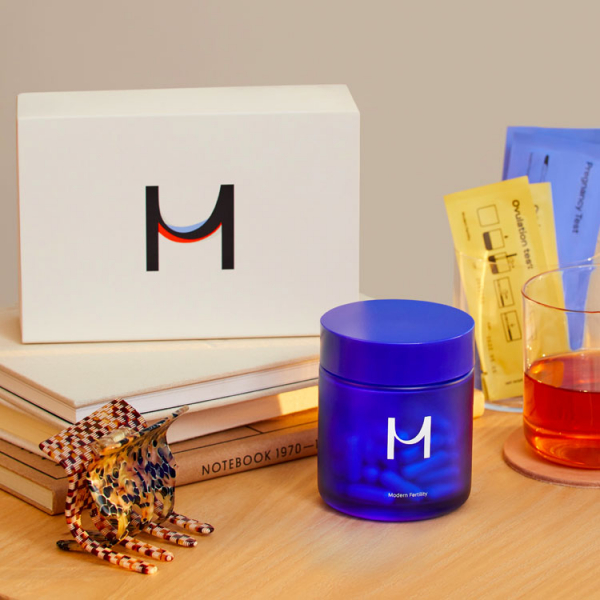
Source: Modern Fertility
Your 20s are weird because everyone is in a different place: You may have some friends who already have two kids while other friends just booked a one-way ticket to Thailand after quitting their job on a split decision. But one thing we all have in common, no matter what’s in our five-year plan, is that knowledge is power. Whether having kids is a part of your future or not, knowing your body is crucial for health. The Modern Fertility Hormone Test is the most comprehensive hormone test you can take at home for a fraction of the cost, and it comes with personalized reports, 1:1 consultation with a fertility nurse, and a community of people to lean on for support. Modern Fertility believes that knowing your fertility early on is the key to owning your future.
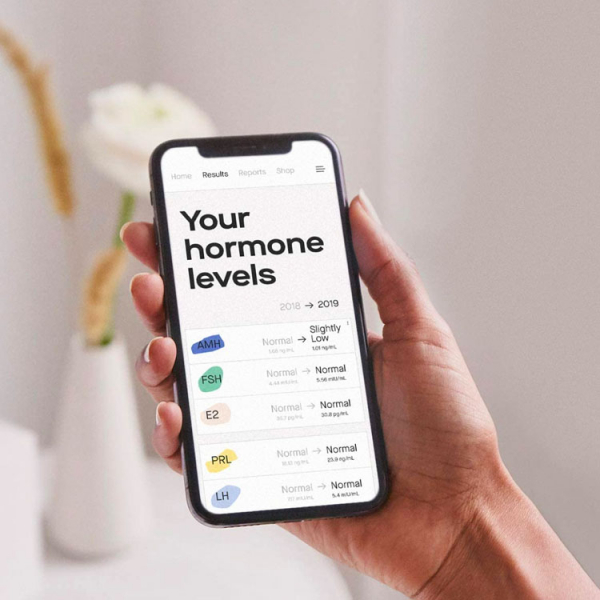
Source: Modern Fertility
Real talk: whether you are considering having kids or not, Modern Fertility can get you the information you need to be proactive about your reproductive health. The test will give you insight into your ovarian reserve (how many eggs you have), potential success rates for IVF and egg-freezing, and can help identify red flags that may indicate a hormone imbalance (1 in 10 women suffer from PCOS.)
Think of Modern Fertility like every 20-something’s best friend: it will help you plan for the future you want, and be there to support you every step of the way. The test is also HSA/FSA eligible and shipping is always free. Get 10% off your order HERE.
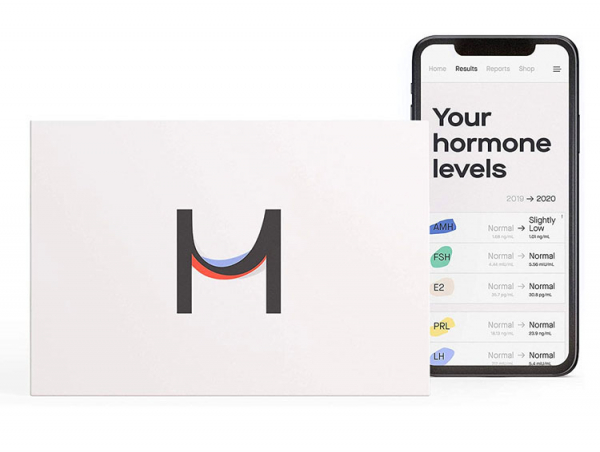
Modern Fertility
At-Home Fertility Hormone Test
The most comprehensive fertility hormone test you can take at home to be proactive about your fertility.
Shop now
2. Schedule regular doctor appointments
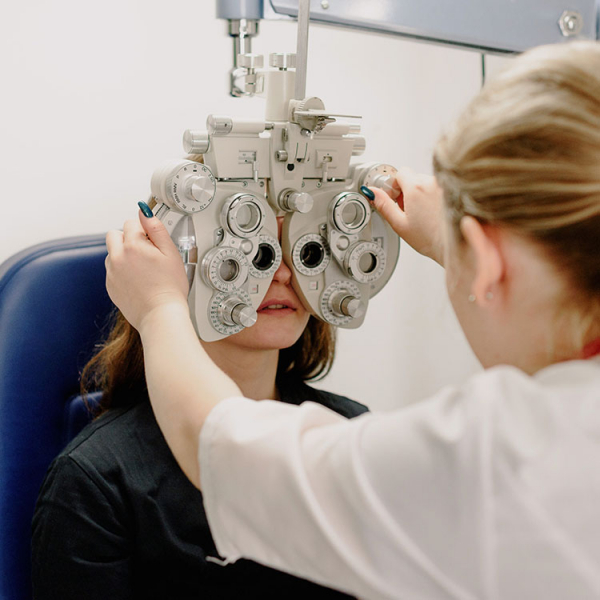
Source: Ksenia Chernaya | Pexels
Whether you’re an older Gen Z or a younger millennial, you might not be in the habit of scheduling regular doctor visits. Maybe your mom always scheduled those appointments for you until you turned 18 so it’s just not a habit, or maybe you let busy work life and an overbooked calendar delay those appointments because there’s no pressing issues right now. PSA: Health is not something you focus on when you’re forced to. Preventive health ensures your body is as healthy as possible, and regular visits are important to stay on top of symptoms or underlying issues you don’t even know are there (yes, even as young as your 20s).
You need a physical exam once a year, but you should also see a gynecologist every year if you have a vagina, a dermatologist every few months (depending on your family history, concerns, etc.), a dentist every six months, and any other specialists as needed. Get in the habit of scheduling all appointments needed for the next 12 months at once. Dedicate some time this week to make all the appointments you’ll need over the next year, and set up a system to make sure to keep regular appointments in the future (like booking the next appointment at the doctor’s office or scheduling the same chunk of time in a year from now to make those appointments).
3. Take your mental health seriously
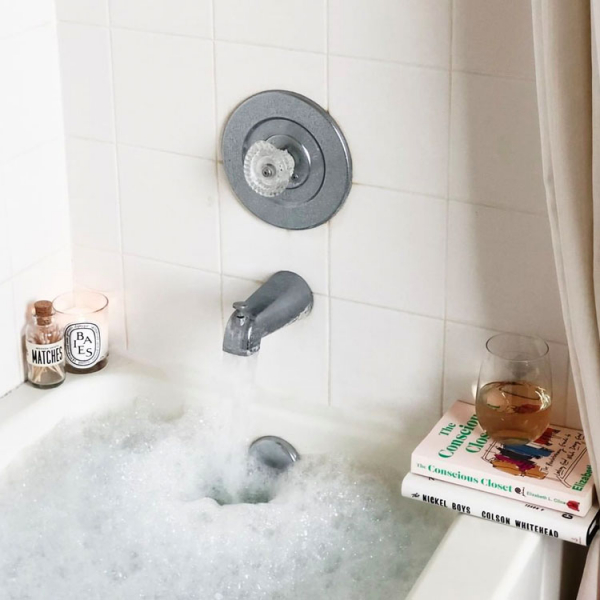
Source: The Everygirl
The good news is that our generation prioritizes mental health more than any generation before, thanks to normalizing therapy (thank you, #therapytiktok!) and moving away from burnout culture. But just because it’s “common” to feel anxious and burned out does not mean you should feel anxious or burned out. You have routines for your physical health (read: eating your veggies, working out, and annual doctor visits), and you should have an established routine for your mental health too. Whether that means weekly therapy sessions, daily meditation, regular tech-free time, or leaving a job that’s depleting you, prioritize mental health above all else. Oh, and don’t wait until you’re totally burned out or suffering with anxiety or depression to ask for help and make some changes. Work with a therapist and instill daily practices to avoid getting to that point in the first place.
4. Eat for your health
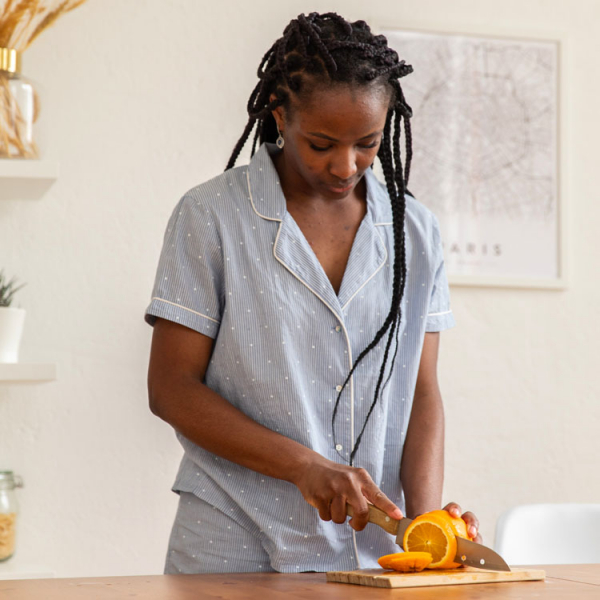
Source: Ekaterina Bolovtsova | Pexels
Maybe it was when you graduated college and realized cafeteria food and binge-drinking wine out of bags just wouldn’t cut it anymore, or maybe as you got older, you noticed your body doesn’t bounce back from a McDonald’s meal or pitcher of spicy margaritas like it used to. No matter what the catalyst is, many people start to reevaluate the way that they’re eating when they’re in their 20s. However, just because your body is changing and reacting to food differently does not mean you should be eating for weight loss. Instead, think of every bite you take as an investment in your future self.
What you’re eating now will impact your health in 10, 20, or 30 years. Instead of just eating “healthy” so that your body can look a certain way, start eating to boost heart health (like leafy greens and avocados), keep your energy levels increased (like bananas or dark chocolate), or improve overall longevity (like cruciferous vegetables and berries). In other words, eat your fruits and veggies because they’ll help you feel good, not just because they help you look good. It’s certainly never too soon to start eating for your future self, so get in the habit now of using food as a tool to stay your healthiest as you get older.
5. Wear SPF every time you go outside
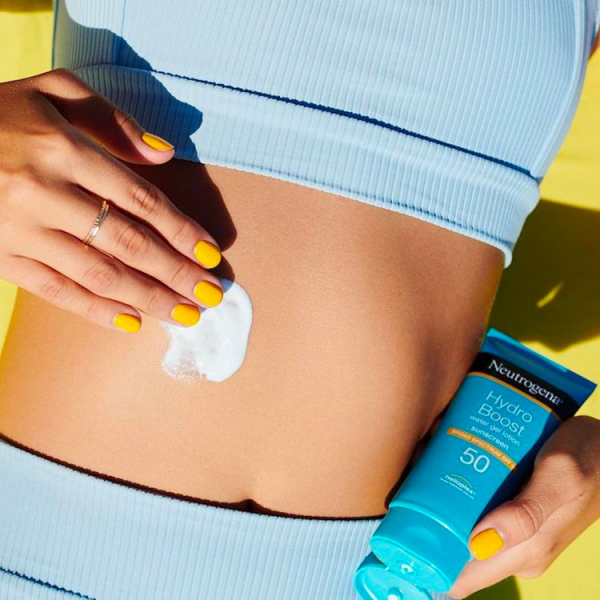
Source: @neutrogena
If SPF is something you only pull out before a beach day, we need to talk. Sun protection is a crucial part of overall health, but it’s one of the most overlooked. Sun damage (including skin cancer) can happen anytime you’re exposed to the sun, not just if you get a bad burn after a day outside. If you’re not yet in the habit of applying SPF every time you leave the house, keep a face sunscreen by the front door with your keys and wallet so you remember to put on a quick layer before running out the door or keep a bottle in your car for easy reapplication. Of course, sun protection is most important for protecting against serious sun damage like skin cancer, but it’s also a crucial time to prevent other forms of sun damage like wrinkles or hyperpigmentation that increase as we age. Trust me, you’d much rather take preventative measures now to protect your gorgeous skin than fight the effects years from now.
6. Get a good night’s sleep (every night)

Source: Alaina Kaczmarski
Long gone are the days of regular clubbing until 6 a.m. or pulling an all-nighter for an exam. Sure, we might have a fun night out here and there, a special event, or an extra heavy workday that will give us a shorter night of sleep, but I stopped being able to enjoy any time spent out past 11 p.m. the day I turned 25. The reality is that sleep cannot be a second thought or a welcomed bonus like it might have been in your teenage and college years. Start prioritizing sleep (and quality sleep) every night. Turn off Netflix at a reasonable time and have a go-to wind down routine that you prioritize over the next episode of Outer Banks (as hard as it is to turn it off!). Especially as we get older, sleep is crucial for keeping the body as healthy as possible and our energy levels high, so prioritize getting a full seven to nine hours of sleep every night.

Unexpected Ways Your Body Changes After 25
READ NOW

This post contains a sponsored inclusion of Modern Fertility, but all of the opinions within are those of The Everygirl editorial board.
